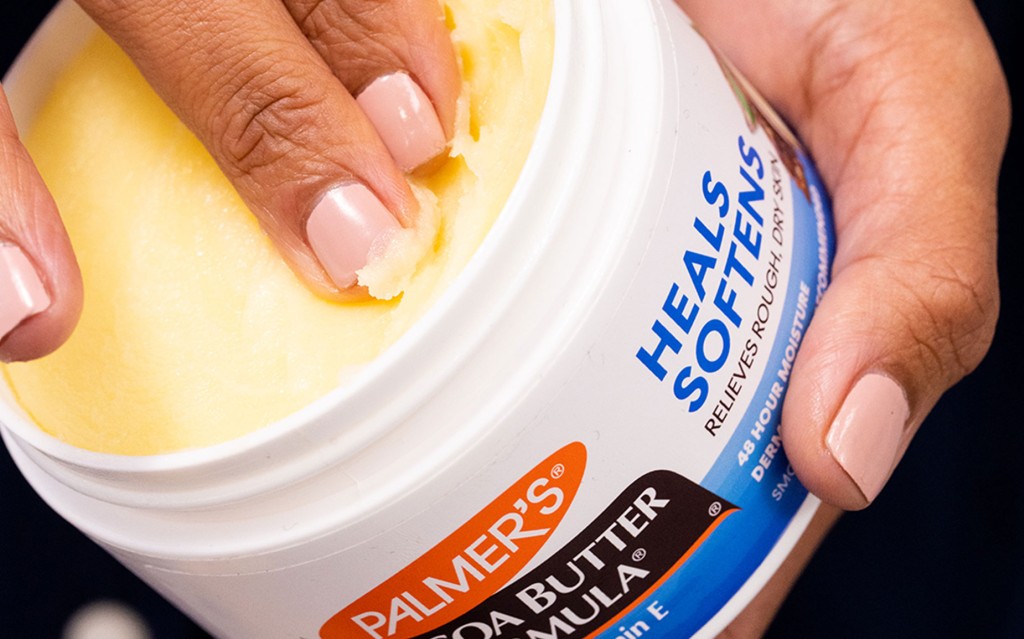You might be wondering if your favorite face cream can do more than just hydrate your skin. Can it really replace sunscreen?
Many products on the market claim to offer sun protection, but is that enough to keep your skin safe from harmful UV rays? Understanding the difference between face cream and sunscreen is crucial for your skincare routine. We’ll dive deep into the roles these products play and help you make informed choices for your skin.
Don’t risk your skin’s health—keep reading to discover the truth about face cream and sunscreen. Your skin deserves the best protection!
Table of Contents

Credit: wishtrend.com
The Role Of Face Cream In Skincare
Face cream plays a vital part in skincare. It helps keep the skin healthy and radiant. Many people use face cream daily to hydrate and nourish their skin. It can also protect the skin from environmental damage.
Finding the right face cream matters. Different skin types need different formulations. Some creams are thick, while others are light. Understanding these differences can help you choose the best one for your skin.
Hydration And Nourishment
Hydration is key for healthy skin. Face creams provide moisture to keep skin soft. They help prevent dryness and flakiness. Nourishing ingredients in creams support skin health.
Well-hydrated skin looks plump and youthful. It also helps reduce the appearance of fine lines. Regular use of face cream can improve overall skin texture.
Common Ingredients In Face Creams
Many face creams contain beneficial ingredients. Common components include hyaluronic acid, glycerin, and vitamins. These ingredients work together to hydrate and nourish the skin.
Hyaluronic acid draws moisture into the skin. Glycerin helps lock in hydration. Vitamins like C and E offer antioxidant protection.
Understanding these ingredients helps you choose wisely. Look for creams that suit your skin type. This way, you can enjoy all the benefits of face cream.

Credit: www.palmers.com
How Sunscreen Protects The Skin
Sunscreen is essential for skin health. It shields the skin from harmful UV rays. These rays can cause sunburn, skin aging, and skin cancer. Understanding how sunscreen works helps in making smart choices.
Uv Rays And Their Effects
UV rays come from the sun. They are invisible and can harm the skin. There are two main types: UVA and UVB.
UVA rays penetrate deep into the skin. They cause long-term damage. This leads to wrinkles and age spots. UVB rays affect the outer skin layer. They are responsible for sunburn.
Both types can increase the risk of skin cancer. Protection from these rays is vital. Sunscreen helps prevent this damage.
Spf And Its Importance
SPF stands for Sun Protection Factor. It measures how well sunscreen protects against UVB rays. A higher SPF means more protection.
For example, SPF 30 blocks about 97% of UVB rays. SPF 50 blocks about 98%. No sunscreen can block all rays.
Reapplying sunscreen is crucial. Sweat, water, and time can reduce its effectiveness. Use sunscreen every two hours for best results.
Key Differences Between Face Cream And Sunscreen
Understanding the differences between face cream and sunscreen is important. Both products serve unique purposes. They help your skin but in different ways. Let’s explore their key differences.
Formulation And Purpose
Face creams focus on hydration and skin care. They contain ingredients like moisturizers, vitamins, and oils. Their main job is to nourish and soothe the skin.
Sunscreens, on the other hand, protect against UV rays. They contain active ingredients like zinc oxide or chemical filters. Sunscreens are made to block harmful sun exposure.
Using face cream cannot provide adequate sun protection. It lacks the necessary ingredients to shield your skin effectively. Always use sunscreen for sun safety.
Level Of Sun Protection
Sunscreen has specific SPF ratings. These ratings indicate how well it protects against UV rays. A higher SPF means better protection.
Face creams do not have SPF ratings. They may offer some sun protection, but it is not reliable. Relying on face cream alone can lead to skin damage.
For effective skin care, use both products. Apply face cream for hydration. Follow with sunscreen to protect against the sun.
Risks Of Substituting Face Cream For Sunscreen
Using face cream instead of sunscreen may seem convenient. Many creams claim to hydrate and protect. Yet, this substitution can lead to serious skin risks. Understanding these risks is crucial for your skin’s health.
Insufficient Uv Protection
Most face creams do not offer enough UV protection. Sunscreen is specially formulated to block harmful rays. Many creams lack the right ingredients for effective sun defense. Without proper UV filters, your skin remains vulnerable.
Even creams labeled “SPF” may not provide adequate coverage. The SPF value can be misleading. A face cream may only protect against UVB rays, not UVA rays. UVA rays cause long-term skin damage and aging.
Increased Risk Of Skin Damage
Substituting face cream for sunscreen raises the risk of skin damage. Without adequate sun protection, skin can burn easily. Sunburn leads to peeling, redness, and pain.
Over time, lack of protection can cause dark spots and wrinkles. Skin cancer risk also increases with unprotected sun exposure. Daily use of sunscreen is essential for healthy skin.
Can Dual-purpose Products Be Effective?
Many people seek products that serve more than one purpose. Face creams with SPF promise to hydrate and protect. But can these dual-purpose products really be effective? Understanding their strengths and limitations helps in making smart choices.
Spf-infused Face Creams
SPF-infused face creams offer sun protection and hydration. They can simplify your skincare routine. These creams often contain moisturizing ingredients. This helps keep your skin soft and smooth.
Some SPF face creams provide good protection. They usually have an SPF of 30 or higher. This level is often recommended for daily use. Look for broad-spectrum protection. This ensures coverage against both UVA and UVB rays.
Limitations Of Multi-use Products
Despite their benefits, multi-use products have limitations. Face creams might not offer the same protection as dedicated sunscreen. Sunscreens undergo strict testing for effectiveness. They also have specific application guidelines.
Applying a face cream may not provide enough coverage. You need to apply sunscreen generously. Most people don’t use enough product. This could lead to inadequate sun protection.
Consider your skin type and lifestyle. If you spend a lot of time outdoors, a separate sunscreen is wise. Always check product labels for the right SPF and ingredients.
Tips For Proper Sun Protection
Sun protection is key for healthy skin. Many people wonder about using face cream instead of sunscreen. While some creams offer SPF, they may not be enough. Here are tips to ensure you protect your skin from harmful UV rays.
Choosing The Right Sunscreen
Start by selecting a broad-spectrum sunscreen. It protects against both UVA and UVB rays. Look for a minimum SPF of 30. Higher SPFs offer more protection.
Check the ingredients. Choose sunscreens with zinc oxide or titanium dioxide. These ingredients are effective and safe for sensitive skin.
Consider your skin type. Oily skin may benefit from a gel-based sunscreen. Dry skin can use cream-based options for better hydration.
Don’t forget to reapply every two hours. If you swim or sweat, reapply more often. Use enough product to cover all exposed skin.
Building A Sun-safe Skincare Routine
Start your routine with a gentle cleanser. Clean skin absorbs products better. After cleansing, apply a moisturizer suitable for your skin type.
Next, apply sunscreen daily, even on cloudy days. UV rays can penetrate through clouds. Make sunscreen a part of your morning routine.
Consider wearing protective clothing. Hats and sunglasses block UV rays. Find shade during peak sun hours, usually from 10 a.m. to 4 p.m.
Regularly check your skin for changes. Early detection of skin issues can prevent serious problems. Protect your skin now for a healthier future.
Debunking Common Myths
Many people think face cream can replace sunscreen. This is a common myth. Understanding the facts helps protect your skin better. Let’s explore two key areas of confusion.
Face Cream As An All-in-one Solution
Some face creams claim to offer sun protection. They often contain SPF. But this does not mean they are enough. The level of protection may be too low. Most face creams do not provide broad-spectrum protection.
Effective sunscreen needs to block both UVA and UVB rays. Many creams only protect against UVB rays. This can lead to skin damage over time.
Using face cream alone could be risky. A separate, high-SPF sunscreen is often necessary. Combining both products is the safest option.
Sun Protection On Cloudy Days
Many believe they don’t need sunscreen on cloudy days. This is another myth. Up to 80% of UV rays can reach your skin even when it’s cloudy.
Sun exposure still occurs. Skin can be harmed without visible sunlight. This means sunscreen is essential every day.
Apply sunscreen daily, regardless of the weather. Protecting your skin should always be a priority.

Credit: www.youtube.com
Frequently Asked Questions
Can Face Cream Provide Sun Protection?
Face cream can offer some sun protection, but it typically lacks the broad-spectrum effectiveness of dedicated sunscreen. Most face creams do not contain adequate SPF levels. For optimal sun protection, it’s best to use sunscreen specifically formulated for UV defense alongside your face cream.
Is Sunscreen Necessary Under Makeup?
Yes, sunscreen is necessary even under makeup. Makeup products may not provide sufficient UV protection. Applying a dedicated sunscreen ensures your skin is shielded from harmful rays. Look for makeup with added SPF, but always layer it over a proper sunscreen for best results.
What Spf Is Recommended For Daily Use?
For daily use, an SPF of 30 is generally recommended. This level blocks about 97% of UVB rays. If you spend extended time outdoors, consider a higher SPF. Always reapply every two hours or after sweating or swimming for effective protection.
Can I Skip Sunscreen If My Face Cream Has Spf?
Skipping sunscreen is not advisable, even with SPF in your face cream. Many face creams offer insufficient coverage or protection. It’s important to apply a dedicated sunscreen to ensure adequate defense against UVA and UVB rays. Always layer it under your face cream for maximum safety.
Conclusion
Face cream cannot replace sunscreen. Sunscreen protects your skin from harmful UV rays. Many face creams offer hydration but lack sun protection. Always choose a broad-spectrum sunscreen. It shields against both UVA and UVB rays. Layering your products is key for healthy skin.
Use face cream for moisture and sunscreen for safety. Prioritize sun protection every day. Your skin deserves the best care. Make informed choices for a healthy, glowing complexion.


Leave a Reply